
Careers News
- Details
The Law Society has published a practice note on the approach to conflicts of interest that will be taken in the Solicitors Regulation Authority’s new Handbook, which is coming into force on 6 October.
Chancery Lane said: “This information on conflict of interests looks very different to that provided in the 2007 Code and, in line with outcomes-focused regulation, there is much less information and guidance.”
The practice note, which can be viewed here, covers issues such as:
- What is own interest conflict and client conflict?
- How do I assess if there is a conflict of interests?
- Exceptions when you may act when there is a client conflict
- Acting for a buyer and seller
- Acting for clients who are the lender and borrower
- Relations with third parties in a conveyancing transaction.
Outcomes-focused regulation will see a move away from a rules-based approach to one that focuses on high-level outcomes governing practice and the quality of outcomes for clients.
The SRA Handbook includes a Code of Conduct (the SRA Code) that will replace the Solicitors’ Code of Conduct 2007.
The Law Society said: “The outcomes as written maintain the current policy position on conflict of interests, but this has been written in the new outcomes-focused way. This may leave it open to practices to innovate and find new ways by which they might satisfactorily achieve the necessary outcomes in the SRA Code.”
Chancery Lane called on all solicitors to read the practice note.
- Details
The Law Society has launched a strong attack on the proposed scheme for assessing the standards of advocates working in criminal cases, warning that it could be “disproportionately costly and of uncertain efficacy”.
The Quality Assurance Scheme for Advocates (QASA) received the conditional endorsement of the Solicitors Regulation Authority last week.
The scheme was developed by the Joint Advocacy Group (JAG), which was set up in late 2009 by the SRA, the Bar Standards Board, and IPS (ILEX Professional Standards). Under the proposals, most advocates will be assessed through live performance by judges.
The SRA said its approval was conditional on receiving a number of assurances. These relate to preparations for judicial training, the costs of the scheme, and the need to ensure that advocates acting in cases before judges involved in their evaluation were not faced with any apparent conflict interests.
The Bar Standards Board will consider the scheme on 16 June, while IPS will examine it at a meeting in July.
If approved by all three bodies involved in the JAG, the proposals will be submitted to the Legal Services Board for initial approval in July and full submission in September. The aim is to have the scheme introduced in phases from January 2012.
According to the SRA, the number of advocates affected by the scheme within each of the three regulators ranges “from a small number of IPS advocates at level 1 to thousands of higher rights solicitors and barristers seeking to practise at levels 3 and 4”.
The SRA said that the proposals relate only to the application of the scheme to criminal advocacy “although it provides a model which could be used in other areas of advocacy if required”.
SRA chief executive Antony Townsend said: "Currently those who undertake advocacy in the criminal courts may have qualified through different routes with varying methods of education, training and assessment.
"While this system may have worked in the past, lawyers, clients, the public and the judiciary, need to be satisfied that advocates appearing in the criminal courts are operating to consistent standards. The changing face of the legal landscape, coupled with competition and commercial issues are all creating pressures which mean that we need to take a more proactive approach – both in the public interest and for consumer protection – to ensure that advocates are competent and able to perform well.”
The JAG was planning to pilot aspects of the scheme at two court centres – Canterbury and Durham – in May and June.
If approved the first stage of the scheme for initial accreditation of advocates at levels 3 and 4 will become operational in January 2012. Live assessment of advocates at levels 3 and 4, either by judicial evaluation or by an assessment organisation, will begin in March 2012.
The Law Society said it had concerns about the proposed methods of assessment. It also questioned the justification of the scheme, saying it was “unaware that any evidence had been published to support the assertion that advocates were falling below the appropriate standards”.
Chancery Lane warned that the QASA approach would shift the assessment burden to hundreds of “already overworked” judges and that it would be impossible to moderate the scheme in a transparent or coherent manner. Nor had any attempt been made to assess the affect of the scheme on the advocacy market, it argued.
The Law Society added that its own schemes supporting solicitor advocates should be considered by the SRA and the Legal Services Board as an alternative, more proportionate approach.
Law Society President Linda Lee suggested that judges were not always going to be aware of the nature of the advocate's instructions and their role was primarily to judge a case, not assess performance.
"We fear that this will cause advocates considerable difficulties in their relationship with the judges if they are assessing their performance,” she said.
Lee also expressed concern about QASA’s costs, and questioned whether it was appropriate to introduce an additional burden on criminal advocates operating on legal aid rates.
"We believe that, before this, or any scheme is implemented, evidence should be gathered as to whether it is a proportionate solution to any problem and there should be a proper pilot to identify whether the standards have been placed at the right level and whether judicial evaluation will work fairly and effectively– in other words we simply ask the SRA and the other regulators involved to comply with the better regulation principles – an approach they have previously espoused,” the Law Society President added.
Philip Hoult
- Details
Regulators are being urged to resolve “as a priority” the prospect of local government and other in-house solicitors being barred from providing pro bono advice in areas of reserved legal activity.
The restriction is contained in the latest version of the Solicitors Regulation Authority’s new Handbook (rule 4.10), the key implementation date for which is 6 October 2011.
The Handbook details all the regulatory requirements for law firms and in-house lawyers as well as new entrants such as alternative business structures. It effectively says that in-house lawyers will not be able to provide pro bono reserved legal activities to the public through their employers, unless their employers are regulated by the SRA.
Richard Collins, head of standards at the SRA, said the issue had arisen purely as a result of what the Legal Services Act 2007 says, and was not something the authority had wanted.
“There isn’t a provision in the Act that says in-house lawyers may not do pro bono reserved activities but it is the effect of a combination of a number of provisions of the Act,” he said.
“Obviously in reaching that view we have discussed it with the Legal Services Board, who have to approve all our regulatory arrangements. Our interpretation of what the Act means is shared by the LSB. So in policy terms, it is not a policy outcome we were desiring.”
Collins added that the SRA was working with the LSB to try and find a solution. One potential mechanism being looked at is the Board recommending to the Lord Chancellor that he make an order under section 15(9) of the 2007 Act around the definition of who a section of the public is in relation to the provision of services. This in turn could allow the SRA to change its regulatory arrangements and allow in-house lawyers to undertake reserved activities on a pro bono basis.
But Collins admitted that it was not wholly clear whether this was possible or whether a change to the primary legislation was needed. He added that the LSB would have to decide, first, whether this was right as a matter of public policy and, secondly, whether it was an appropriate statutory approach to dealing with the issue.
“We have no guarantees or view that if it is possible to resolve this, it will be resolved in time for October,” Collins said. “So assuming the LSB approve our Handbook, these provisions will apply from 6 October.”
In a statement the LSB told Local Government Lawyer that it remained committed to the principle that in-house lawyers should be able to undertake pro bono work. “We are working hard with the SRA to find a workable and proportionate way of ensuring that this can continue to happen in the new framework,” it said.
Rebecca Hilsenrath, chief executive of pro bono charity LawWorks, said the unintended consequence of the 2007 Act was of real concern and should be addressed “as a priority”.
She stressed that it was of the greatest importance that the in-house sector should be supported in maximising their delivery of pro bono legal advice and assistance.
Hilsenrath predicted that of the list of reserved legal activities, the impact in terms of restricting pro bono services was likely to fall largely on advocacy and the conduct of litigation.
“LawWorks does not provide insurance cover for advocacy but we nevertheless recognise the contribution that in-house teams can make, where they are able to provide cover themselves,” she said.
“The restrictions in relation to litigation are more significant to us, because of a lack of clarity and understanding around the stage at which that restriction comes into play and therefore an understandable degree of caution in providing assistance at very early stages in a case where there is even a possibility of proceedings resulting.”
The LawWorks chief executive said that although there had not been any formal analysis of the extent of the in-house contribution to pro bono in England and Wales, in-house lawyers were heavily engaged “particularly in casework and also in electronic advice, clinics and other pro bono projects”.
She added: “Part of LawWorks’ focus and value is in developing pro bono partnerships between in-house teams and law firms, which improve teamwork and communication strategies generally, but in the context of the change in regulation will be particularly valuable in ensuring that pro bono work which cannot be delivered directly by in-house teams is referred to their partner law firms.”
Guy Goodman, a past chairman of Solicitors in Local Government, said: "SLG has always argued that all solicitors are the same whichever sector they work in and whosoever their clients are. Pro bono work should be no different.
“We are grateful that the SRA and the Law Society understand the importance of this and are proactively seeking to remedy the situation. It is really important that they succeed and we will provide all the support we can to them."
Earlier this year SLG warned in a submission to an SRA consultation on the new Handbook that the change to the rules was "significant" and that its rationale was not well argued.
Philip Hoult
- Details
The Bar Standards Board has decided in principle to regulate "advocacy-focussed" alternative business structures and allow barristers to apply to conduct litigation.
At a board meeting on 28 April, the regulator of the Bar in England and Wales agreed that it would regulate advocacy-focussed ABSs, legal disciplinary practices and barrister-only entities.
These BSB-regulated entities will be able to provide the same services as those provided by the self-employed Bar.
However, the regulator has chosen to shy away from covering multi-disciplinary partnerships. It will also impose a number of restrictions:
- All owners of BSB-regulated entities must also be managers; there will be a 25% limit on non-lawyer owners/managers of alternative business structures
- A majority of the owners/managers of ABSs regulated by the BSB will have to be barristers or other advocates with higher rights of audience
- BSB regulated entities and self-employed barristers will not be permitted to hold client money
- All managers of BSB regulated entities – barristers, solicitors and non-lawyers – will be subject to the same conduct rules.
As part of the shake-up, barristers and BSB-regulated entities will be able to apply to conduct litigation.
In other moves, the BSB decided to allow barristers to practise as managers or employees of ABSs regulated by other approved regulators when Part V of the Legal Services Act 2007 comes into force. Barristers will also be allowed to have ownership interests in ABSs “subject to the development of rules and guidance on managing any resulting conflicts of interest”.
BSB chairwoman Baroness Ruth Deech said: “Nearly 75% of respondents to our consultation agreed that BSB regulation of entities would be in the public interest. I am pleased that the Board has listened to the profession and other respondents and has taken this bold step forward, promoting choice and increasing access to justice.
“We intend to target our regulation on advocacy focussed entities, taking a risk-based and proportionate approach. We hope that this decision will allow barristers the freedom to react to changes in the legal market and permit them to devise new ways of working in order to remain competitive and better serve the public.”
Baroness Deech said much hard work was still to come. This will include development of a detailed regulatory framework, draft rules and options, which will include a further cost analysis. The BSB chairwoman said this would be issued for consultation in autumn 2011.
- Details
Solicitors in Local Government may be required to become a division of the Law Society if it is to retain its funding from Chancery Lane, it has emerged.
SLG has operated for eight years as an independent company limited by guarantee and is recognised by the Law Society under the Recognised Groups Agreement (RGA). It is through that agreement that the group obtains its core funding from Chancery Lane enabling it to operate.
In recent weeks the Law Society indicated to SLG that it intended to give notice under the RGA terminable at the end of 2011. It is understood that similar indications were given to other recognised groups such as the Commerce & Industry Group.
However, SLG chairman Steve Turner said at the Weekend School in Exeter last Friday that Law Society President Linda Lee had assured him that Chancery Lane’s membership board had subsequently rejected the proposal for termination at the end of the year. The Law Society will instead seek to re-engage the groups in discussions before determining any future action, he told delegates.
The background to the potential changes is a reorganisation at the Law Society involving the implementation of a new operating system called Blueprint.
Speaking at the Weekend School, Turner said: “We are immensely proud that this close association [with the Law Society] enables SLG to represent its members and play a significant part in the development of practice and law in the way it does.”
Turner said that termination of the RGA, if it went ahead, would appear to give SLG and the other recognised groups two options, namely either to:
- remain independent of the Law Society, unrecognised and without funding, or
- become (again in the case of SLG) a part of the Law Society as a Division operating in much the same way as had been established by the formation of the Junior Lawyers Division.
Turner said he welcomed the news of a change of approach that the Law Society President had brought to Exeter.
He told delegates that the SLG had only just begun to consider the impacts and ramifications of recent developments, including their impact on the group’s discussions with the Association of Council Secretaries and Solicitors about how to create a single voice for solicitors in local government.
“Nevertheless you can rest assured that this will be at the forefront of the mind of the incoming Chairman, Bev Cullen, and of the National Executive Committee over the next few weeks and months,” he added.
Turner said it was likely that any changes resulting from these developments would need to be put to SLG members in advance of the currently scheduled AGM in 2012.
A spokeswoman for the Law Society said: “The way that the Recognised Groups Agreement operates is having a discriminatory impact on how we deal with members. We are working in consultation with groups and committees to deliver a new way of working collaboratively.”
Philip Hoult
- Details
 Naomi Bentley-Lawson, a child protection solicitor at Warwickshire County Council, has been named Local Government Young Solicitor of the Year for 2011.
Naomi Bentley-Lawson, a child protection solicitor at Warwickshire County Council, has been named Local Government Young Solicitor of the Year for 2011.
Bentley-Lawson, who specialises in safeguarding and children’s services, received the award at a black tie dinner on Friday as part of the Weekend School in Exeter.
The judges highlighted the following in choosing Naomi as the winner:
*Shown great tact in managing innovative solutions in a sensitive area of local government legal practice.
*Led a number of high profile, complex cases including advocacy in the Magistrates, County and High Court.
*Renewed important practice guidelines for the safeguarding of children and built excellent relationships with other agencies.
*Committed to the wider strategic and business planning functions of her directorate.
*Providing training to officers, members and Advisory Panels.
*Awareness of the changing policy background to her practice and a significant contribution to achieving efficiencies and focus with regard to the Legal Advice to the Child Protection Service in very challenging times.
Naomi said “Not only is this a great personal success, I am thrilled that the work of Young People’s Legal Services at Warwickshire County Council has been recognised. Child protection is a complex area of law, which challenges you academically, creatively, and on an emotional level. The service we provide is invaluable to achieving better outcomes for children, and this award will inspire the team further to continue providing an outstanding legal service.”
The other shortlisted candidates were Sarah Bonser, a solicitor in the planning and highways team at Kent County Council, and Sabrina Sangha, who works in the corporate team at Thurrock Borough Council.
The Young Solicitor of the Year award has been running since 2005 and is sponsored by law firm Trowers & Hamlins. It is intended to recognise the unique and valuable contribution that young solicitors make to their authorities and communities.
Page 85 of 88
Director of Legal and Governance (Monitoring Officer)
Senior Lawyer - Advocate
Head of Governance & University Solicitor
Assistant Director - Legal & Governance
Events

 Back to Basics: Construction Insurance and Insolvency - Devonshires
Back to Basics: Construction Insurance and Insolvency - Devonshires
16-07-2025 2:00 pm
Online (live)
 Institutional landlord series: Service and Notices – from Possessions to Injunctions and Requests for Access - 5 Pump Court
Institutional landlord series: Service and Notices – from Possessions to Injunctions and Requests for Access - 5 Pump Court
16-07-2025 4:00 pm
Online (live)
 HMPL Building Blocks: Tackling Non-occupation and Sub-letting - Devonshires
HMPL Building Blocks: Tackling Non-occupation and Sub-letting - Devonshires
17-07-2025
Online (live)
 To establishing whether Material Changes of Use have occurred - Ivy Legal Training
To establishing whether Material Changes of Use have occurred - Ivy Legal Training
18-07-2025 9:30 am
Online (live)
 Business and Property Masterclass #5: Interim Relief – Acting urgently and getting it right - Cornerstone Barristers
Business and Property Masterclass #5: Interim Relief – Acting urgently and getting it right - Cornerstone Barristers
10-09-2025 11:00 am
Online (live)
 Business and Property Masterclass #6: Rights of Light and Restrictive Covenants - Cornerstone Barristers
Business and Property Masterclass #6: Rights of Light and Restrictive Covenants - Cornerstone Barristers
23-09-2025
Online (live)
 HMPL Building Blocks: Service Charges & Ground Rent – Tackling Leasehold and Shared Ownership Arrears - Devonshires
HMPL Building Blocks: Service Charges & Ground Rent – Tackling Leasehold and Shared Ownership Arrears - Devonshires
14-10-2025
Online (live)
 Institutional landlord series: Possession – High Court Enforcement - 5 Pump Court
Institutional landlord series: Possession – High Court Enforcement - 5 Pump Court
22-10-2025 4:00 pm
Online (live)
 Institutional landlord series: Costs Recovery and Legally Aided Parties - 5 Pump Court
Institutional landlord series: Costs Recovery and Legally Aided Parties - 5 Pump Court
05-11-2025 4:00 pm
Online (live)
 HMPL Building Blocks: Law and Procedure Following Death of a Tenant - Devonshires
HMPL Building Blocks: Law and Procedure Following Death of a Tenant - Devonshires
09-12-2025
Online (live)
 HMPL Building Blocks: Legal Tools to Combat Anti-Social Behaviour - Devonshires
HMPL Building Blocks: Legal Tools to Combat Anti-Social Behaviour - Devonshires
17-02-2026
Online (live)
 HMPL Building Blocks: Tenancy Management – Assignment, Mutual Exchange and Succession - Devonshires
HMPL Building Blocks: Tenancy Management – Assignment, Mutual Exchange and Succession - Devonshires
12-03-2026
Online (live)


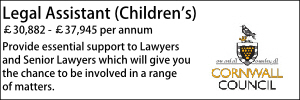
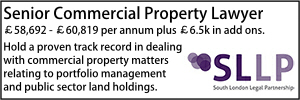
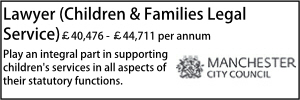

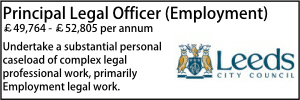








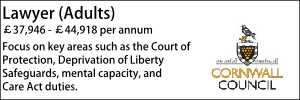
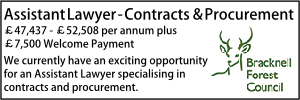






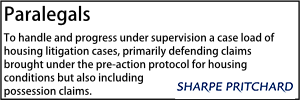



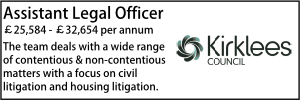


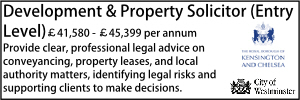
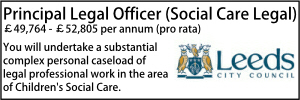








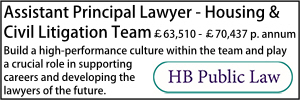



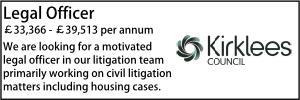




 A-Z Family Law: Take Two! - 42 Bedford Row
A-Z Family Law: Take Two! - 42 Bedford Row  Executive Programme in Public Procurement Law and Policy - University of Nottingham
Executive Programme in Public Procurement Law and Policy - University of Nottingham 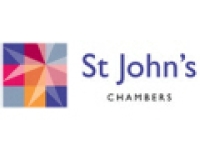 Property Law Roadshow 2025 - Bristol - St John's Chambers
Property Law Roadshow 2025 - Bristol - St John's Chambers  CUBAS Comprehensive Training & Licencing (Manchester), September 2025
CUBAS Comprehensive Training & Licencing (Manchester), September 2025  AI in the Public Sector Conference - Westminster Insight
AI in the Public Sector Conference - Westminster Insight  Activism in the Workplace - 42BR Barristers Employment Law Annual Lecture
Activism in the Workplace - 42BR Barristers Employment Law Annual Lecture  DoLS Authoriser Training - LPS Law
DoLS Authoriser Training - LPS Law 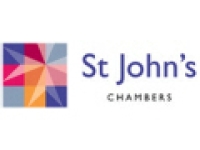 Property Law Roadshow 2025 - Cardiff - St John's Chambers
Property Law Roadshow 2025 - Cardiff - St John's Chambers  Annual Fraud Conference 2025 - Oxford Investigation Service
Annual Fraud Conference 2025 - Oxford Investigation Service